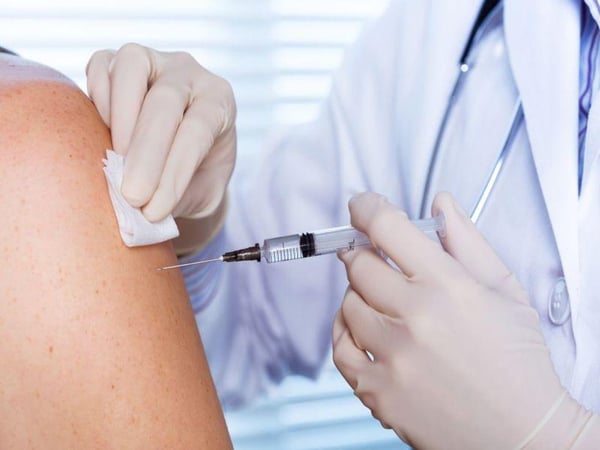Homologous, Heterologous COVID-19 Boosters Are Immunogenic

MONDAY, Feb. 7, 2022 (HealthDay News) -- For adults who completed a primary COVID-19 vaccine regimen at least 12 weeks earlier, homologous and heterologous booster vaccines are immunogenic, according to a study published online Jan. 26 in the New England Journal of Medicine.
Robert L. Atmar, M.D., from the Baylor College of Medicine in Houston, and colleagues conducted a phase 1-2, open-label clinical trial at 10 U.S. sites involving 458 adults who had completed a COVID-19 vaccine regimen at least 12 weeks earlier, had no reported history of severe acute respiratory syndrome coronavirus 2 (SARS-CoV-2) infection, and received a booster dose with mRNA-1273, Ad26.COV2.S, or BNT162b2 (154, 150, and 153 participants, respectively; one participant did not receive the assigned vaccine).
The researchers found that reactogenicity was similar to that of the primary series. Injection-site pain, malaise, headache, or myalgia were reported by more than half the recipients. Antibody neutralizing titers against a SARS-CoV-2 D614G pseudovirus increased by a factor of 4 to 73 for all combinations; binding titers increased by a factor of 5 to 55. Neutralizing antibody titers increased by a factor of 4 to 20 with homologous boosters and by a factor of 6 to 73 with heterologous boosters. In all but the homologous Ad26.COV2.S-boosted subgroup, spike-specific T-cell responses increased. In the Ad26.COV2.S-primed recipients, CD8+ T-cell levels were more durable; spike-specific CD8+ T cells were increased substantially with heterologous boosting with the Ad26.COV2.S vaccine in mRNA vaccine-primed individuals.
"These data suggest that an immune response will be generated for each of these vaccines used as a booster regardless of the primary COVID-19 vaccination regimen," the authors write.
Several authors disclosed financial ties to the pharmaceutical industry, including Pfizer, Moderna, and Johnson & Johnson.
Related Posts
Your Hobby Could Help Keep Depression at Bay
TUESDAY, Sept. 12, 2023 (HealthDay News) -- Seniors, pick up those knitting...
El daño de salud se acumula con cada nueva infección con la COVID
LUNES, 14 de noviembre de 2022 (HealthDay News) -- Cada vez que una persona se...
AHA News: A New Route to Keeping Women in Rural Communities Healthy
TUESDAY, Nov. 15, 2022 (American Heart Association News) -- A community health...
EE. UU. podría enfrentarse a un aumento en el número de adolescentes con diabetes
VIERNES, 30 de diciembre de 2022 (HealthDay News) -- Estados Unidos podría...
